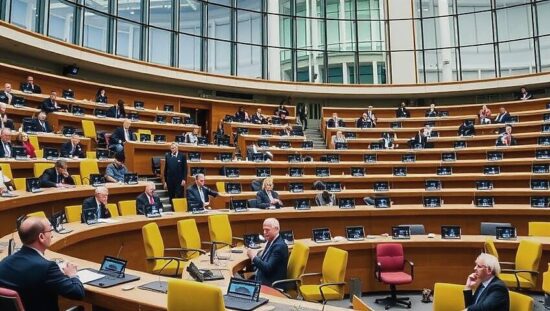Environmental policymakers in the European Parliament warn of the planned EU emissions trading system being delayed.
“If the system starts later, prices will rise very quickly and very strongly” said CDU MEP Peter Liese to the Spiegel. “No one would be helped by that.” Instead, he advocated for new European-level support programs. For example, he suggested subsidizing the leasing of electric cars for low-income earners.
Just before Christmas, the Czech Prime Minister Petr Fiala had proposed delaying the start of the European emissions trading system by at least a year. Similar requests had been made by the Polish government, which will take over the EU presidency in the first half of the new year.
Green MEP Michael Bloss, on the other hand, wants to stick to the original timeline for the emissions trading system. At the same time, he criticized the Union’s demands to lift the planned ban on the sale of gasoline and diesel vehicles by 2035 and to overturn the heating law of the traffic light coalition. “Regulation and market economic instruments are communicating vessels” he said to the Spiegel. “Conservatives must understand this if they want to keep the emissions trading system.”
SPD environmental politician Tiemo Woelken is considering a change in the timeline if a effective financial compensation for low-income earners is not created by the planned start of the emissions trading system in 2027. If a “socially acceptable application” is not foreseeable, one must “talk about a price brake or a delay” he demanded in the Spiegel.
The EU’s plans for the emissions trading system provide for the emission of greenhouse gases in transport and heating to be priced, with the price capped at 45 euros by 2030. However, according to expert estimates, prices could then rise rapidly to 150 or even 250 euros. Car drivers would then have to pay at least 40 cents per liter of gasoline extra at the pump.





